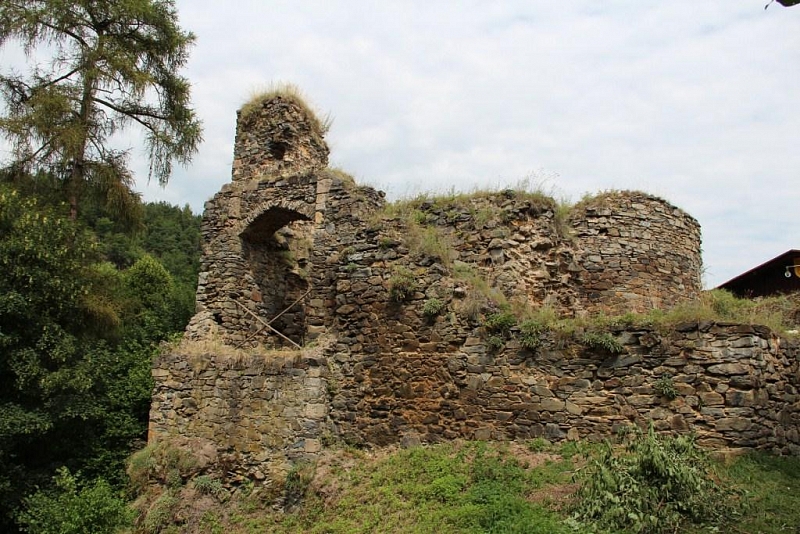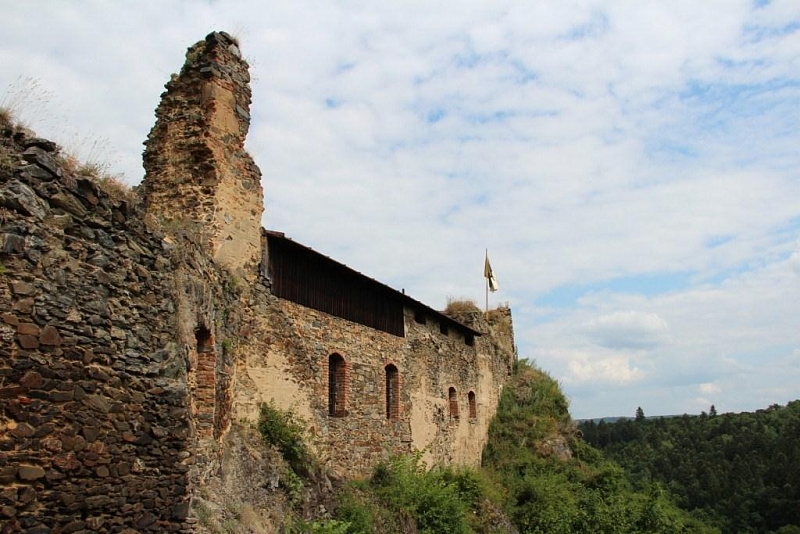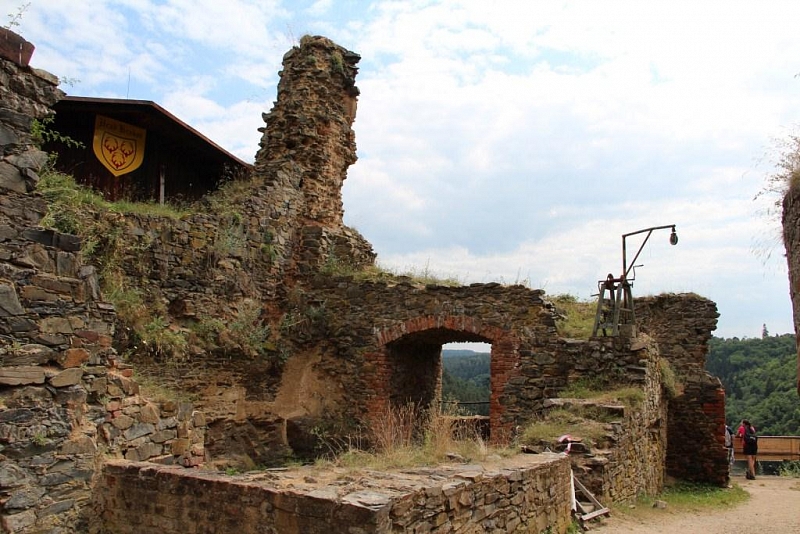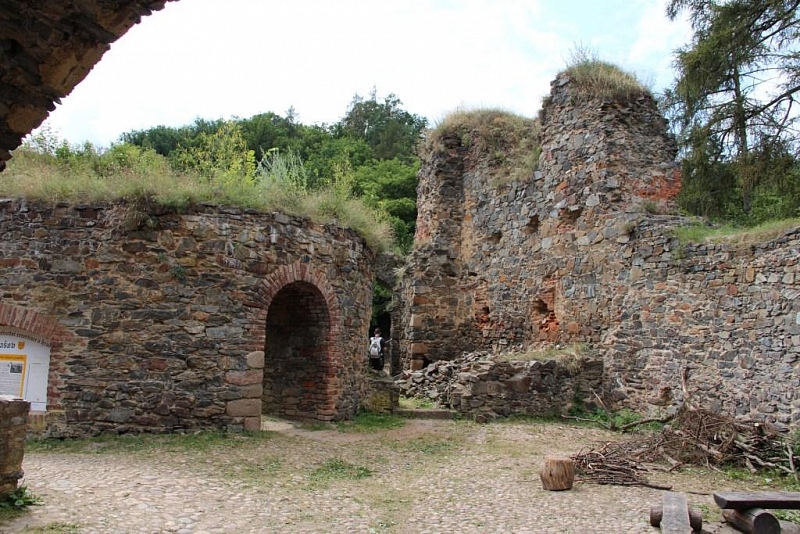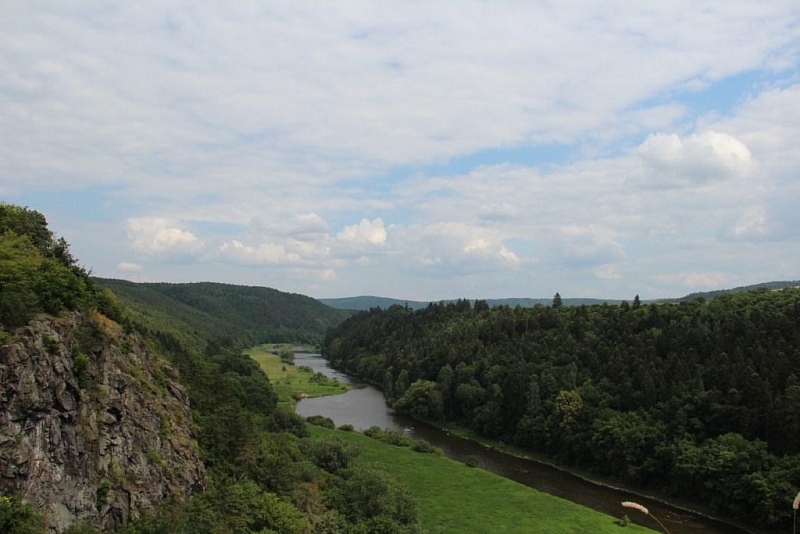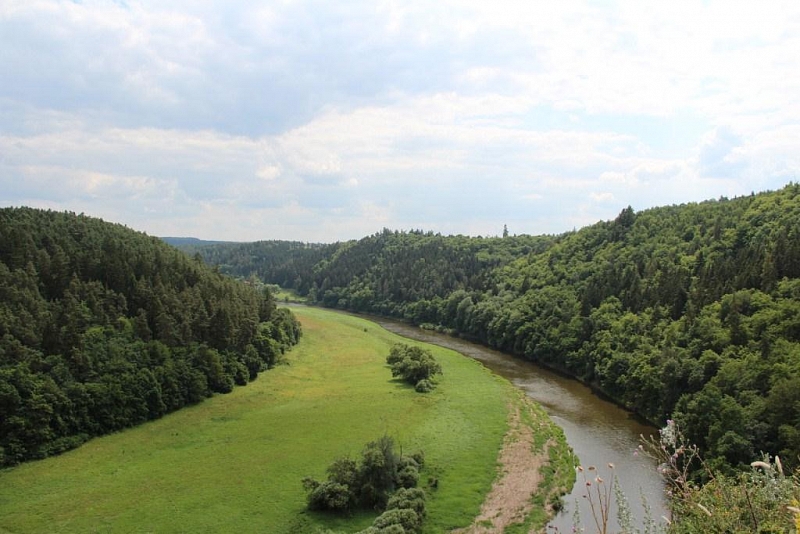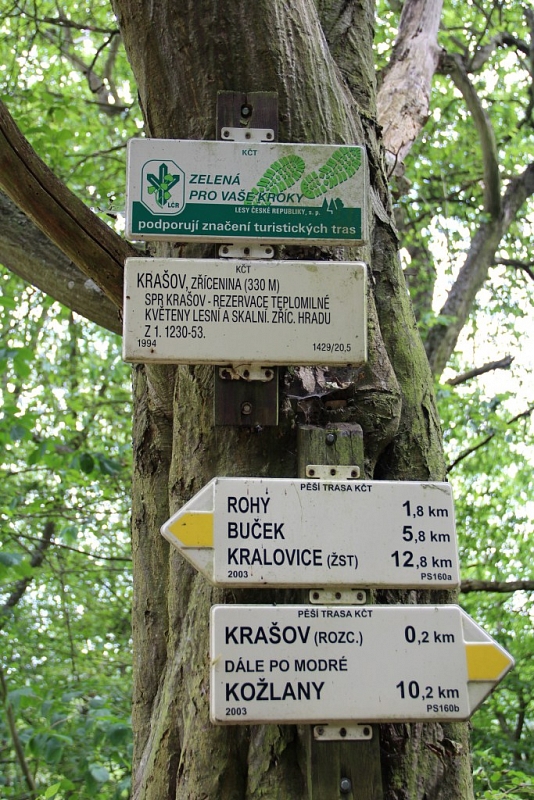Krašov (ruins)
Come with us to recharge your batteries in the Hřešihlavská nature reserve, which is unique with thermophilic and drought-loving vegetation. Krašov Castle stands on a steep hill and the Berounka River flows below it.
Information for visitors
Interesting facts Krašov (ruins)
Krašov is one of the oldest aristocratic castles in our country, it was founded in 1232 by Jetřich of the Hroznatovec family. It stood on a rocky promontory above the river Berounka and the Brodeslav brook. In the 13th century, the castle was rebuilt in the late Gothic style, a new palace was added and the fortifications were modified. The construction of the fort probably took place in the 15th century. In the 16th century, it was rebuilt into a Renaissance chateau and in the years 1755 - 1779 it was remodeled in the Baroque style by the monks of the Planská monastery, which it served as a summer residence. After the abolition of the monastery, the castle was abandoned and dismantled for building materials. Around 1800 it was already a ruin. It is now managed by the Association for the Rescue of Krašov, which has built a tourist hostel here.
The castle consisted of a tower with an edge, bergifrite, a two-storey palace, the chapel of St. Ludmila and many farm buildings in the forecourt. Among the important ones was a brewery with a cellar and a malt house, a smithy, a tavern, a spa, a brickyard, a mill, etc. The castle was separated from the forecourt by a massive moat and a drawbridge. The fort is one of the best preserved in our country.
Near the castle stands the ruins of Libštejn, which is connected with Krašov by the legend of the cursed knight. It says that the lord of Krašovský and Libštejn were enemies for life and death because of the farm that stood on the border of both estates. The lord of Kraš occupied the farm with his people. Therefore, the lord of Libštejn invaded Krašov, seized the knight of the family and threw it into the cellar. After two long years, the Knight of Krašov attacked Libštejn and was about to free his wife and children, but he found that they could no longer be helped, he found only a pile of bones. He got angry and had the lord of Libštejn and his family killed, threw them into the cellar and covered them with stones. Since then, the spirit of the Knight of Libštejn, who was not properly buried, has wandered around. Only once did a farmer from the border farm follow the ghost, find the bones, and bury them. He was duly rewarded with gold and silver, and the Knight of Libštejn finally found peace.
Author: Marie Bukovinská
